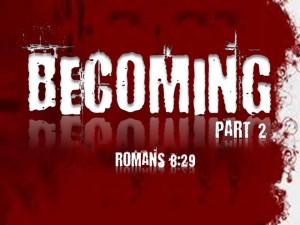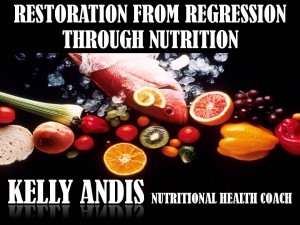 STAYING POWER - Philippians 1:6
STAYING POWER - Philippians 1:6
“The only gift Jesus Christ desires from us is ourselves. This year let us make our lives fit to offer to Him.
Only the grace of God can enable us to do that.”
- Dec 29, 2013Staying Power (Phillippians 1:6)
Dec 29, 2013Staying Power (Phillippians 1:6)Series: general
What I Want For The New Year: 1. Faith enough to accept whatever God designs for me (Rom. 8:28; 1 Cor. 10:13; Eph. 2:10; Phil. 1:6; Jer. 18:6; Eph. 5:20) 2. A life so yielded to God that I realize His complete purpose for me (Rom. 12:2, 6:13) 3. Gratitude enough to be thankful for every mercy and blessing of God (Ps. 103:2, 68:19; Lam. 3:22, 32; Ps. 86:5; Ro. 1:21, 24-25) 4. Enough patience to build Praise Center Church into an even greater ministry (2 Cor. 6:4; James 1:3; Ro. 5:3) 5. God’s smile and approval on all I say and do (2 Cor. 5:9; Gen. 17: 1-2) 6. Grace Enough To Be Sweet Under All Conditions (2 Tim. 4:2) STAYING POWER - Philippians 1:6
STAYING POWER - Philippians 1:6“The only gift Jesus Christ desires from us is ourselves. This year let us make our lives fit to offer to Him.
Only the grace of God can enable us to do that.”
- Dec 18, 2013Becoming Part 2
Dec 18, 2013Becoming Part 2By: Micah EspinozaSeries: general
PRINCIPLE 1: LOOK BENEATH THE SURFACE
Emotionally healthy people take a deep, hard ______________ their hearts, asking, “What is going on that Jesus Christ is trying to ____________?” They understand that a person’s ________ is like an iceberg, with the vast majority of who we are lying deep beneath the surface. They invite God to bring to their awareness and to transform those beneath-the-surface layers that hinder them from becoming more like Jesus Christ. Key Scripture: (Proverbs 4:23) Key Insights: only about 10 percent of an iceberg is visible to the surface. That is the part of our lives of which we are consciously aware. Note, however, that the Titanic sank because it collided with a section of the submerged 90 percent of an iceberg. Most people shipwreck or live inconsistent lives because of forces and motivations beneath the surface of their lives, which they have never even considered. The Problem: like Adam and Eve in the Garden of Eden, we would rather hide from truth and protect ourselves rather than come out exposed, naked to God. This has been a problem of sin since the beginning of time (Gen. 3:1–19). The Solution: God often uses pain to get us to change. Unless there is sufficient discomfort and anguish, most people will not do the hard work to take a deep, honest look inside. This seems especially to apply to men and women in midlife. It has rightly been said, “We change our behavior when the pain of staying the same becomes greater than the pain of changing”.We must learn to allow the Holy Spirit to Guide us as we take a painfully honest look at ourselves “beneath the surface”.
The Process:- Developing an Awareness of What I Am Feeling and Doing
- Learning to ask the “Why” or “What’s Going On” Questions
- Linking the Gospel and Emotional Health
PRINCIPLE 2: BREAK THE POWER OF THE PAST
Emotionally healthy people understand how their __________ their __________ to love Christ and others. They’ve realized from Scripture and life that an intricate, complex relationship exists between the kind of person they are today and their past. Numerous _____________ may shape us, but the family we have grown up in is the _____________ source that will shape and influence who we are. Key Scripture: (Exodus 20:5-6) Key Insights: It is impossible to break free from the past apart from _________________ the families in which we grew up. The Solution: Unless we grasp the power of the past on who we are in the present, we will inevitably ____________ those ______________ in relationships inside and outside the church. Our family is the most powerful, influential group that has affected who we are today except in rare instances, 2318! That’s four generations. The Process: IDENTIFYING HOW YOUR FAMILY __________ YOU The following questions will help you to get beneath the surface at how the past might be impacting the present:- Describe each family member with three adjectives and their relationship to you.
- Describe your parents’ relationship.
- How was conflict handled in your family? Anger? Tensions?
- How were gender roles and authority worked out in your family?
- How well did your family do in talking about feelings?
- How would your family describe you? How do you think your family thinks about you?
- How was sexuality talked or not talked about? What were the implied messages?
- Were there any family “secrets” (such as a pregnancy out of wedlock, incest, or major financial
- What was considered “success” in your family?
- How was money handled? Spirituality? Holidays? Relationship with extended family?
- How did your family’s ethnicity shape you?
- Were there any heroes or heroines in the family? Scapegoats? “Losers”? Why?
- What kinds of addictions, if any, existed in the family?
- Were there traumatic losses in the past or present, such as sudden death, prolonged illnesses,
- How was spirituality expressed?”
- _______________ such as a divorce, sexual or emotional abuse, an addiction, a lengthy period of unemployment, poverty, a particular betrayal, or a friendship have also impacted the person you have become.
- Learn to ask the right questions - What are a few events or people that have impacted who I am today, that will help me understand ‘what makes me tick’?”
- We are given a new name: _____________
- New __________________ (freedom, glory, hope, resources a hundredfold)
- New power: The _________________, allows us to live in this new life.
- We become ___________________ of the divine nature (2 Peter 1:4, Luke 11:5–13)
- There exists a _____________________ in the life inside me, the life of Jesus!
PRINCIPLE 3: LIVE IN BROKENNESS AND VULNERABILITY
Emotionally healthy people live and lead out of _________________ and ____________. They understand that life in the kingdom of God is from the bottom up, not a grasping, controlling, or lording over others. It is leading, serving, and ministering out of ____________ and _____________, questions and struggles—a serving that _____________. It is a noticeably different way of life from what is commonly modeled in the world and, unfortunately, in many churches. Key Scriptures: (2 Corinthians 12:9, Matthew 10:26-28) Key Insights: The things that could have destroyed you, didn’t… Instead God has ___________ those things to ______________ you, but you have to _______________ them and walk in the truth. (Genesis 50:20, Romans 8:28). The Solution: We need to find ______________ from the let downs, disappointments, mistakes, and even the ____________ that was perpetrated on you in your past, and realize that they have made you the person you are today a person of compassion, vision, and ________________. The Process:- Developing a Theology of Weakness
- Accepting Your Handicap as a Gift
PRINCIPLE 4: RECEIVE THE GIFT OF LIMITS
Emotionally healthy people ______________ the _____________ God has given them. They ________________ the one, two, seven, or ten talents God has so graciously distributed. As a result, they are not frenzied and covetous, trying to live a life God never intended. They are marked by contentment and joy. Key Scripture: (Matthew 25:14-30 ESV) Key Insights: God has given you a certain amount of ____________. He did not give you every talent… As kids we heard the message that “we could be anything we wanted in life—a doctor, musician, professor, writer, a professional athlete”. But the truth is, we can only be what _____has ______________. (I tried to play basketball like Michael Jordan as a kid but I couldn’t. Every team I played on lost most of our games.” Only do what only you can do! The Solution: We must ______________ our limitations and view them as friends that keep us safe from heart ache and disappointment. The Process: Recognizing that Jesus Embraced ____________________- As far as we know, Jesus did not do any miracles the first thirty years of his life. Instead he was a faithful son, employee, and participant in his community and synagogue.
- At the time of his baptism, he was affirmed by God the Father, “You are my Son, whom I love; with you I am well pleased” (Mark 1:11).
- Immediately thereafter he was thrust into the desert to be tempted by the devil. The essence of the temptation was to transgress or cross over the limits God had placed around him. Jesus had to learn obedience through what he suffered (Heb. 5:8). That included setting limits and watching needs that remained unmet.
- He didn't go throughout the whole world preaching everywhere, He didn't chase crowds (they chased Him), not even after many left after a hard message.
- Jesus did not go in person to meet the needs of everyone in Europe, Africa, Asia, or the Americas.
- But in the end He prayed at the end of his life, “I have ... [completed] the work you gave me to do” (John 17:4).
The frightening truth is we can sometimes pass through our God-given limits and end up doing God’s work without God!
LEARNING TO ________________ MY LIMITATIONS- A. Look at your _________________. Do you get more energy from being with people (extrovert) or from doing tasks (introvert)? Are you more spontaneous and creative, or controlled and orderly? Are you more easygoing and relaxed, or tense and anxious?
- B. Look at your _________________ of life. Your season of life is also a God-given limit. Ecclesiastes teaches us there is a time or season for everything under heaven: There is “a time to plant and a time to uproot . . . a time to weep and a time to laugh . . . a time to be silent and a time to speak” (Eccl. 3:1–8).
- C. Look at your life _________________. Your life situation is also a limit. When we age physically, we find our bodies cannot do what they used to. When we are young and without much life experience, certain doors may remain closed to us. If we have a physical or emotional disability or a sickness, we may find this keeps us from going down a path we may have planned.
- D. Look at your ________________and ______________ from your family past. They are also God-given limits and gifts. If we will look for the hand of God moving in our family history, even in the most painful moments, we will find golden nuggets in that rocky soil. Abuse, neglect, abandonment, poverty, oppression, and so on may cause us to feel we are “behind” always trying to catch up. God sees it differently.
- Finally, remember that God, at times, will take us beyond our limitations in supernatural ways.
PRINCIPLE 5: EMBRACE GRIEVING AND LOSS
Emotionally healthy people _________________ as a way to _____________ more like God. They understand what a critical component of discipleship grieving our losses is. Why? It is the only _______________ to becoming a ________________ person like our Lord Jesus. Key Scripture: (2 Corinthians 1:3-4 NIV) Key Insights: We spend a lot of time trying to _________________ over our losses, unaware of how they are shaping our current relationships and ministries. God is seeking to enlarge our souls and mature us, while we usually seek a quick end to our pain. The Solution: We can take an example from David who is well known for being a man after God’s own heart (1 Sam. 13:14; Acts 13:22). What few realize is how closely this characteristic is related to the way he repeatedly _________________ to loss, disappointment, and threats of death. The Process: PAYING ATTENTION AS PART OF THE GRIEVING PROCESS- David understood how indispensable _______________ is to ___________________. We are deepened by taking the time to grieve our losses before moving on. It is important to stay connected to _____________ and not to ________ from their _______.
- B. If we ________________ the pain and loss in our life, it will make us _________ and poisonous to those around us. Instead we must allow the pain and loss to bring us closer to our maturity, purpose and finally to God! (Isaiah 57:15 NIV)
PRINCIPLE 6: MAKE _________________ YOUR MODEL FOR LOVING WELL
Emotionally healthy people _________________ follow the model of Jesus. They learn to follow the two dynamics of _______________ found in the life of Jesus in order to love other people: entering another’s world, and holding on to yourself.” Key Scripture: (Matthew 5:46-48) Key Insights: The definition of Incarnation is: "the embodiment of a deity or spirit in some earthly form”. We are not simply believers in Christ who live as separate beings from Him, we have however been grafted into the body of Christ as one who belongs and has been made one with Him. Because of this truth of our identity we are called to be the hands, feet and body of Christ Himself on earth as we love those in need around us. The Problem: We view ourselves as our own and our Christian service as “volunteerism” to the church and the lost. We have not truly and completely died to ourselves and become His sole possession with whom He does what He pleases. (1 Corinthians 6:19-20, Revelations 5:9, Galatians 2:20) The Solution: We must learn to see ourselves as _________ with Jesus and _____________ Him as not only as our saviour, but also as _________ of our lives, and willing lay our life down and completely follow Him. The Process: LIVING OUT THE FIRST DYNAMIC: ENTERING __________________WORLD- Recognize that Jesus through the will of the Father chose to enter our world in order to help and save us… (John 6:38 NIV)
- Learn to listen… Reflective listening is very simple. One person has the floor, speaking a few sentences at a time. You don’t go on and on. Then the listener repeats back to him or her exactly what has just been said. The person listening attempts to enter into the world of the person speaking, laying aside questions, agendas, defenses, and simply seeks to understand the other person’s experience. (James 1:19)
- A. The great challenge in incarnation, for most of us, is to hold on to ourselves and not to lose ourselves when we enter another person’s world. To do so is to be like Jesus. The apostle John records that prior to Jesus’ washing his disciples’ feet, he “knew that the Father had put all things under his power, and that he had come from God and was returning to God” (John 13:3). Jesus never ceased to be God when he took on human flesh and became one of us.
- Dec 4, 2013God’s Last Call To A Sinful Nation (Obadiah 1:2-4)
- Nov 27, 2013In Everything Give Thanks (1 Thessalonians 5:18)
- Nov 24, 2013The Free Gift Of God – Romans 6:23
Nov 24, 2013The Free Gift Of God – Romans 6:23Series: general

THE FREE GIFT OF GOD
EPHESIANS 2:8-9
1.) GOD IS A GIVER (ROM. 6:23)
a.) Because He loves us, He gives (Jn. 3:16; Rom. 8:32)
2.) “FREELY YE HAVE RECEIVED” (MATT. 10:8)a.) Jesus came from heaven freely (Jn. 6:26-40) b.) Forgiveness of sin is free (Jn. 6:40) (Col. 1:14) c.) The peace of God is a gift from God (Rom. 5:1) d.) The power of the Holy Spirit is a gift from God (Acts 5:32) e.) Heaven is a free gift from God (Jn. 14:1-6)
3.) “FREELY GIVE” (Matt. 10:8)a.) Words and works (Acts 20:35)
1.) Heal the sick 2.) Raise the dead 3.) Cleanse the lepers 4.) Cast out demons (Acts 26:18)
“If we got the pay we had earned, it would be death; but, out of His grace, God has given us life.” (Rom. 6:23)
- Nov 20, 2013The Cloak, The Cross and The Call
- Nov 19, 2013Nutrition Series – Restoration from Regression through Nutrition
Nov 19, 2013Nutrition Series – Restoration from Regression through NutritionBy: Kelly AndisSeries: general
- Sep 29, 2013Family Sunday: Our Surroundings Control Our Soaring
Sep 29, 2013Family Sunday: Our Surroundings Control Our SoaringSeries: general

OUR SURROUNDINGS CONTROL OUR SOARING
1 Samuel 13:1-3
TWO KEYS THAT DETERMINE WHO WE ARE1.) Who we perceive ourselves to be 2.) Who we associate with (2 Sam. 13:3) “. . . Amnon has a friend. . .” (Prov. 13:20; 1 Cor. 5:9,11)
A.) FOUR BASIC PRINCIPLES OF SURROUNDINGS:1.) Your surroundings (friends) will make or break you (1 Cor. 15:33, 5:11, 2 Cor. 6:17-18; 2 Jn. 1:10) 2.) You are or become like your surroundings (friends) (Ex. 23:2; Prov. 4:14) 3.) You are known by your surrounding (friends)
a.) Surround yourself with friends that have a proper outlook on life (Prov. 24:1) (Prov. 27:17; 22:24)
4.) Your future is no greater than your surroundings (friends)
a.) Amnon forfeited his future because of his friend (Prov. 18:24)
“He had a great future, a great family. He just had the wrong kind of friend.”






